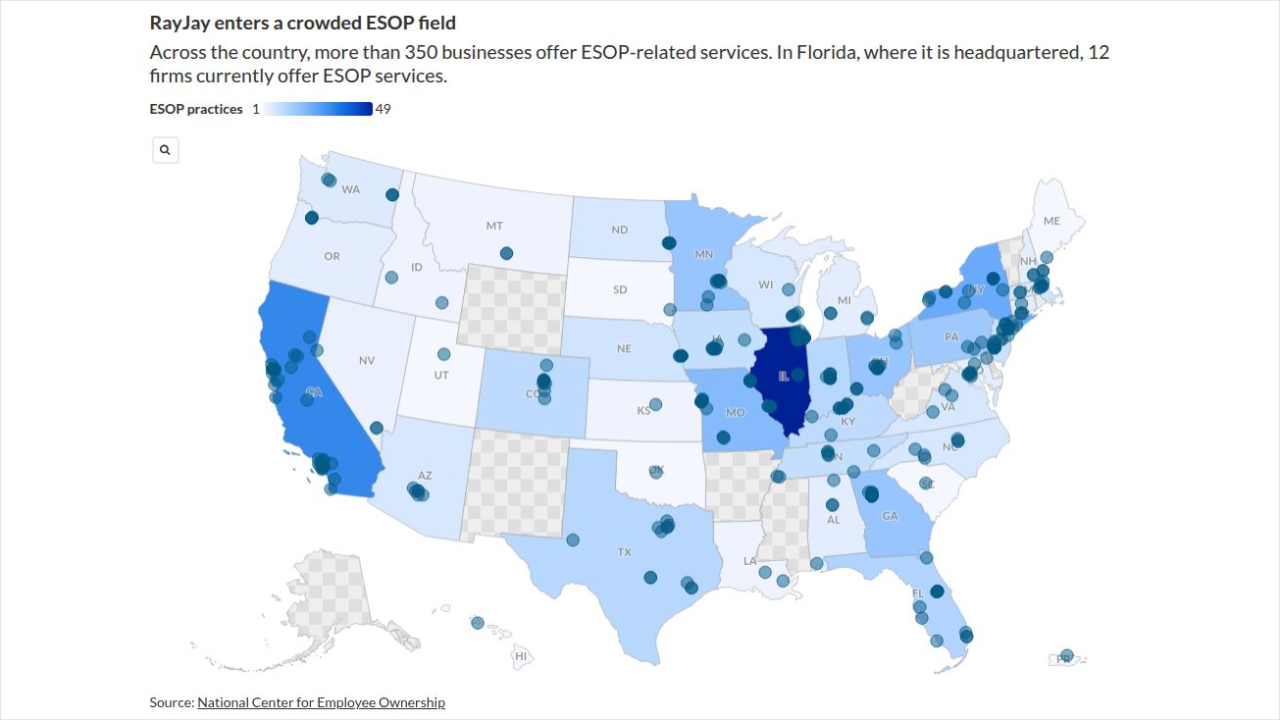(Bloomberg) -- J.P Morgan Chase says one of its former financial advisors has gone too far. Two e-mails too far.
Earlier this year, the bank accused financial advisor Salvatore Alesia of breaking contracts when he resigned from J.P. Morgan’s private banking business and joined another firm the same day, alleging he tried to take clients with him. In April, J.P. Morgan won a court order prohibiting Alesia from contacting the old clients while the case was in arbitration.
Returning this week to court, J.P. Morgan accused Alesia of violating the court’s injunction by sending out e-mails to at least one of the ex-clients. He lied in an e-mail to a former client on Dec. 8 by “implying that J.P. Morgan charges its clients “‘hidden’ fees,” the bank said in a petition filed in Manhattan state court.
Alesia also sent former clients a news article about a recent settlement the bank reached with the SEC, along with a message indicating that the clients "may not be aware of all the fees they are charged," the bank said.
“Such a scare tactic is clearly designed to interfere with J.P Morgan’s relationship with its clients” in violation of the injunction, the bank said in the petition filed Monday.
Alesia, who couldn’t be reached for comment, hasn’t responded to the petition. A lawyer who has represented him in the matter didn’t immediately respond to requests for comment. Alesia denied wrongdoing in an April filing, saying he left the bank shortly after it had threatened to dismiss him and had acted in accordance with the industry protocol.
The dispute reflects a growing strain on the protocol. With many firms moving to set stricter in-house rules, some disagreements are spilling into industry arbitration and into courts. In June, two J.P Morgan units sued six former executives who defected to rival Morgan Stanley, seeking a court order blocking them from enticing clients and co-workers to follow.
Kaitlin Finnerty, a spokeswoman for J.P. Morgan, declined to comment.
‘Abrupt Resignation’
Alesia worked for J.P. Morgan at its Melville, New York, office until his "abrupt resignation" on March 27, the bank said in its petition. He joined a Melville office of Morgan Stanley the same day, J.P. Morgan said. He improperly took contact information on some 30 clients and then tried to contact them to have them switch to Morgan Stanley, J.P. Morgan alleged in its petition, filed on March 31.
Alesia’s departure violated his agreement to provide 60 days’ written notice, the bank alleged, adding he also violated an agreement prohibiting him from soliciting the bank’s employees within 12 months of his exit.
Morgan Stanley spokeswoman Christy Jockle declined to comment.
Alesia, in a filing, said he quit less than two weeks after J.P. Morgan had warned him that he was at risk of being fired, citing concerns about his productivity. “I don’t understand how J.P. Morgan can claim, less than two weeks later, that it will be irreparably harmed by my departure,” he said.
Alesia also argued that J.P. Morgan and Morgan Stanley are both signatories of the broker-recruiting protocol. Responding to the bank’s allegation that he took confidential customer data when he left, he said he got the information by searching public sources.
J.P Morgan said Alesia’s exit isn’t covered by the protocol because he worked for J.P. Morgan Private Bank, a part of the bank that isn’t a signatory.
In April, J.P. Morgan and Alesia reached an agreement to keep him from soliciting former clients, pending the outcome of an arbitration filed with FINRA.
Solicitation Calls
J.P. Morgan’s filing came after one of its clients flagged the bank about Alesia’s continued efforts to persuade her to move her account. The client “has complained to J.P. Morgan several times” since April that the ex-broker has called her to solicit her business, according to the petition. The customer wasn’t identified.
On Dec. 8, Alesia wrote to her with an offer to book a meeting in the new year.
“Over the course of the past few weeks, we have been fortunate to be provided statements from former clients,” Alesia wrote to his former client, according to the petition. “Through a thorough analysis of their portfolios, we have discovered that in many cases clients are paying fees that are 30% to 60% more than they believed they were. Additionally, their performance has been lackluster.”
The bank countered: “Not only does the respondent’s e-mail seek to encourage J.P Morgan’s client to move to Morgan Stanley, his e-mail makes misrepresentations about J.P. Morgan fees to its clients,” according to the petition.
In another e-mail later in the December, Alesia wrote: “I thought you might find this of interest.” Attached was a Dec. 18 Bloomberg News article describing the bank’s $307 million settlement with federal regulators over whether the bank adequately disclosed conflicts of interest from 2008 to 2013. The bank failed to tell customers that it profited by putting their money into mutual funds and hedge funds that generated fees for the company, the SEC said. The bank settled a parallel action by the Commodity Futures Trading Commission.
Forwarding the article to the bank, the client added this message: “This was sent to me from our friend Sal. . . . Interesting article! Should I be concerned?”
The bank is seeking sanctions against Alesia and costs of bringing the suit.
Read More:
●
●





